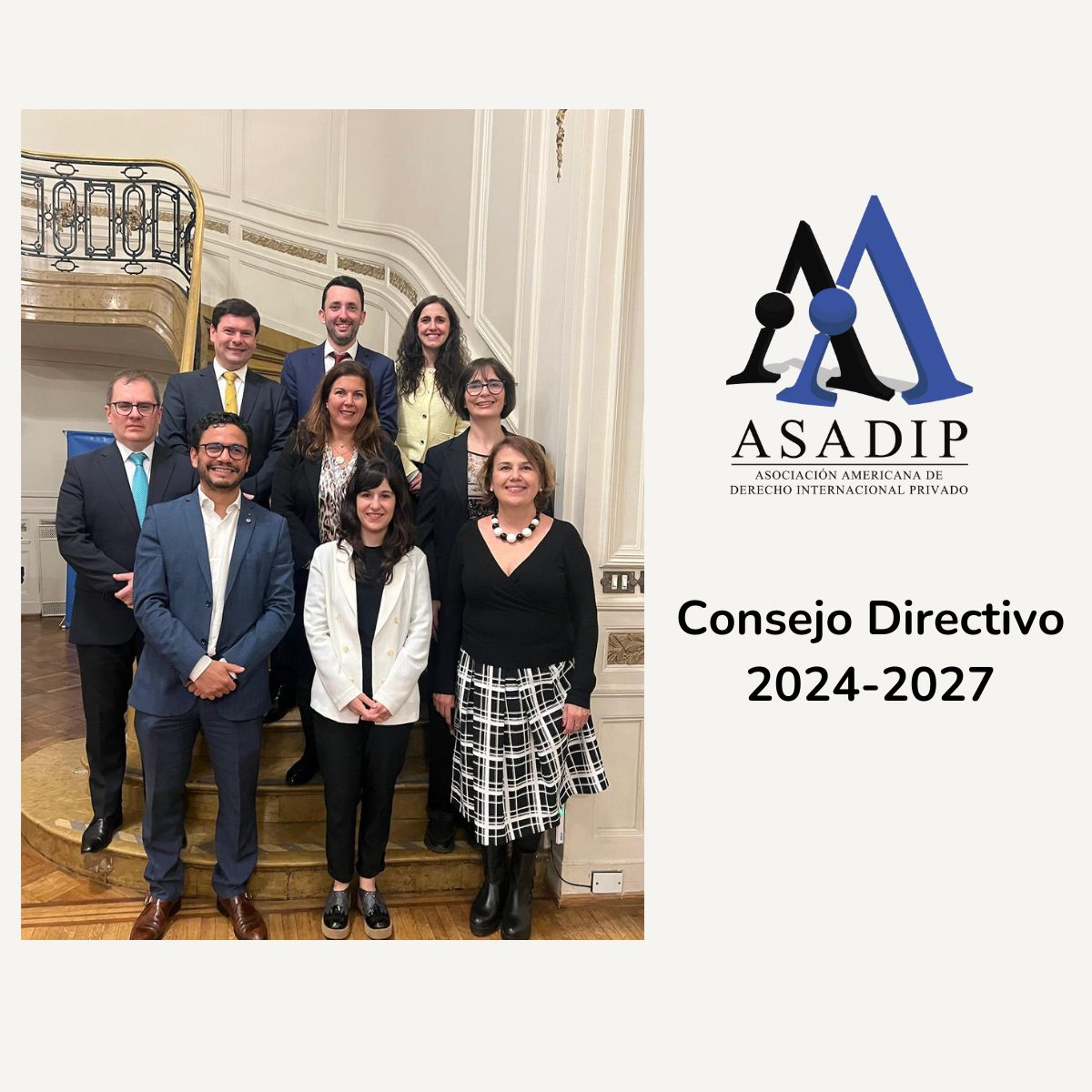Views
China Adopts Restrictive Theory of Foreign State Immunity
Written by Bill Dodge, the John D. Ayer Chair in Business Law and Martin Luther King Jr. Professor of Law at UC Davis School of Law.
On September 1, 2023, the Standing Committee of the National People’s Congress promulgated the Foreign State Immunity Law of the People’s Republic of China (FSIL) (English translation here). When the law enters into force on January 1, 2024, China will join those countries—a clear majority—that have adopted the restrictive theory of foreign state immunity. For the law of state immunity, this move is particularly significant because China had been the most important adherent to the rival, absolute theory of foreign state immunity.
In two prior posts (here and here), I discussed a draft of the FSIL (English translation here). In this post I analyze the final version of the law, noting some of its key provision and identifying changes from the draft, some of which address issues that I had identified. I also explain why analysts who see China’s new law as a form of “Wolf Warrior Diplomacy” are mistaken. Contrary to some suggestions, the FSIL will not allow China to sue the United States over U.S. export controls on computer chips or potential restrictions on Tiktok. Rather, the FSIL is properly viewed as a step towards joining the international community on an important question of international law. Read more
“Quasi” Anti-Suit Injunctions and Public Policy under Brussels Regime
THE CJEU: “QUASI” ANTI-SUIT INJUNCTION JUDGMENTS ARE AGAINST PUBLIC POLICY UNDER BRUSSELS REGIME
This post is written by Mykolas Kirkutis, a lecturer and PhD student of law at Mykolas Romeris University and visiting researcher at Rotterdam Erasmus School of Law, Erasmus University Rotterdam (EU Civil Justice group).
The Court of Justice of European Union (CJEU) on 7 of September 2023 in its newest case Charles Taylor Adjusting Limited, FD v Starlight Shipping Company, Overseas Marine Enterprises Inc. (case No. C?590/21) 2023 rendered a new preliminary ruling related to a non-recognition of “Quasi” anti-suit injunctions’ judgment under public policy ground of Brussels regime. This case is important because of two aspects. Firstly, CJEU clarified the main elements of “Quasi” anti-suit injunctions’ judgments. Secondly, Court stated what impact such judgments have for mutual trust in EU and if it can be safeguarded by public policy ground.
International high-tech surrogacy and legal developments in the Netherlands
This blogpost is an edited version of this blogpost written in Dutch by Stichting IJI (The Hague Institute for private international law and foreign law). We thought it was interesting to also bring it to the attention of the international readership of this blog.
Introduction
In the Netherlands, international high-tech surrogacy is a hot topic, resulting in interesting legal developments. Recently, a Dutch District Court dealt with a case on the recognition of US court decisions on legal parenthood over children born from a high-tech surrogacy trajectory in the US, providing many private international law insights on how to assess such request for recognition. Furthermore, on July 4 a bill was proposed that encloses several private international law provisions. This blogpost briefly highlights both developments.
News
ASADIP: Annual Conference, Moot and New Board



Annual conference
The Annual Conference of the American Association of Private International Law (ASADIP) will take place on 7-9 August 2025 in Rio de Janeiro (Brazil). More information will be available soon. Read more
Legal Internships at the HCCH
Applications are now open for three- to six-month legal internships at the headquarters of the Permanent Bureau of the Hague Conference on Private International Law (HCCH) in The Hague, for the period from July to December 2025!
Interns work with our legal teams in the Family and Child Protection Law Division, the Transnational Litigation and Apostille Division, and the Commercial, Digital and Financial Law Division. Duties may include carrying out research on particular points of private international law and/or comparative law, taking part in the preparation of HCCH meetings and contributing to the promotion of the HCCH and its work.
Applications should be submitted by Friday, 25 April 2025 at 18.00 (CEST). For more information, please visit the Internships Section of the HCCH website.
This post is published by the Permanent Bureau of the Hague Conference of Private International Law (HCCH).

Defending Access to Justice: The Crucial Battle for the IJI
Published on behalf of the IJI, Den Haag
In the heart of The Hague, a critical institution of international legal knowledge faces an existential threat. The International Juridical Institute (IJI) (translated in English to mean the Hague Institute for Private International Law), a venerable organization with a century-long history of providing essential legal guidance, stands on the brink of liquidation due to declining government support.
Founded in 1918 at the iconic Peace Palace, the IJI emerged as a unique global resource. Born in the aftermath of World War I, the institute was conceived as a “gift to the world” noble vision supported by leading businessmen, ministers, and statesmen. The IJI has been a beacon of legal expertise for over a hundred years, offering free and cost-effective advice in the complex realm of private international law. The institute’s current predicament is a stark testament to the fragility of specialized legal resources. Successive government cuts, culminating in eliminating the social advocacy subsidy scheme in 2019, have systematically undermined the IJI’s financial stability. What makes this situation particularly alarming is not just the potential loss of an institution but the broader implications for access to justice.
The IJI is not merely an archive of legal knowledge; it is a critical resource for individuals navigating complex international legal challenges. Many of these cases involve vulnerable populations, including children, who rely on expert guidance to traverse intricate cross-border legal landscapes.
Ironically, the government’s cost-cutting measures may ultimately prove counterproductive. The reduction in funded legal aid is likely to generate more protracted and expensive legal proceedings, potentially negating any initial savings.
The IJI is making a final, humble appeal: a modest annual subsidy of €260,000 to continue its vital work. This relatively small investment could ensure another century of legal expertise and maintain critical access to justice for countless individuals.
How You Can Help
The legal community and concerned citizens have a unique opportunity to make a difference:
- Sign the Petition: Visit the IJI petition page and add your name to support the institute’s continued existence.If you would like to support this cause, we would like to add your signature to the grant application. You can click on the next link: https://petities.nl/petitions/behoud-de-toegang-tot-het-recht-voor-iedereen?locale=de. This leads you to a website where you can sign very easily by giving your name (on the field ‘naam’), email address (on the field ‘emailadres’) and domicile (on the field ‘woonplaats’). You could also tick the box if you want your name visible on the list, if not, you remain anonymous. Please note that after signing, you will receive an email in which you are asked to confirm your signature by clicking on the provided link. Only after confirming, the signature will be registered.
- Spread Awareness: Share the IJI’s story within your professional networks and social circles.
- Contribute Ideas: Of course, we are also open to other ideas that can ensure that our wonderful institute can experience a second 100-year term. If you would like to exchange thoughts with us about this, please do send us an email to info@iji.nl and we will get in touch.
The potential loss of the IJI represents more than the closure of an institution. It symbolizes a potential erosion of specialized legal knowledge, international cooperation, and accessible justice.
As members of the legal community, we have a responsibility to support institutions that serve the broader public good. The IJI’s century of service is a testament to the power of dedicated legal expertise in bridging complex international legal challenges.
Together, we can help ensure that this invaluable resource continues to serve global legal needs for generations to come.
Thank you very much for your support!


